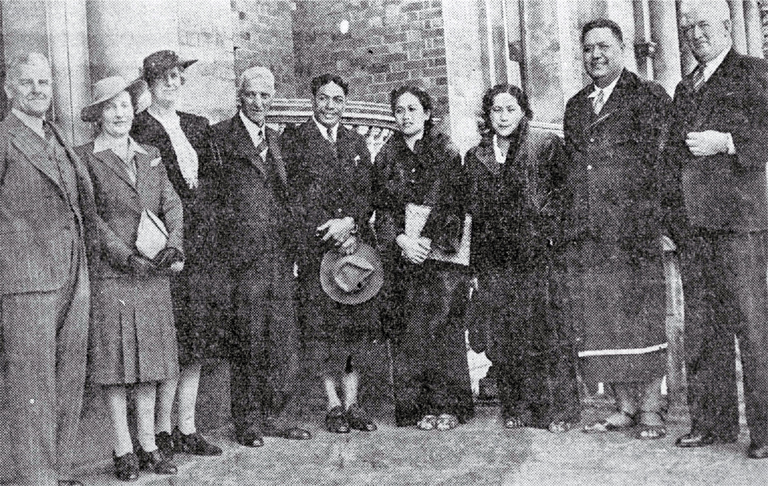Tupua Tamasese Meaole

Tamasese Meaole, the son of Tupua Tamasese Lealofi, was born on June 3rd, 1905 at Vaimoso and lived there with his family in preparation for his future royal duties. He was a talented, natural born leader. He grew up in a royal environment which had a tremendous influence on his future. He received his primary education in Moamoa Vanila Primary School and finished his formal education at Marist Brothers School at Mulivai.
At the age of five, he accompanied his father, Tamasese Lealofi I, to Germany. This trip had a tremendous impact on his life. The large, spacious buildings, cathedrals, European settings, culture and travel experience became his classroom for education.
The Mau (peaceful resistance to New Zealand government) in which his older brother, Tamasese Lealofi II was killed, stirred him with great desire for Independence. In 1936, he was a member of the legislative council and fautua in the 1939 – 1946 trustee agreement. The right of the people to decide their own form of government was presented to the United Nations for Samoa to accept full self-government.
In 1949, the United Nations sent an inspection team to Western Samoa to view these political, educational and economic situation. The report was positive and paved the way for Independence. In 1958, Tamasese chaired the constitutional convention. A plebescite was held in Western Samoa in 1961 in which over 80% of the people voted for Independence.
On January 1, 1962 Western Samoa, a tiny island group, was united with the giants of the world and became the first independent Polynesian state. Tamasese’s efforts came to a fruitful conclusion as a tiny nation was born as a result of blood, tears, sweat and hard work. J.W. Davidson in his tribute to Tupua Tamasese Meaole upon his death on April 5, 1963 said, “He will be numbered among the greatest sons of his country for his firm but sensitive guidance which enabled Samoa to advance smoothly toward Independence.”
Tupua Tamasese Meaole‘s motto, “To be a great leader, you must first be a good follower” will always be an inspirational heritage to all future leader of Samoa.
The above information was taken (as written) from the MCKAY-FALE located in Sauniatu (on the island of Upolu) Western Samoa.